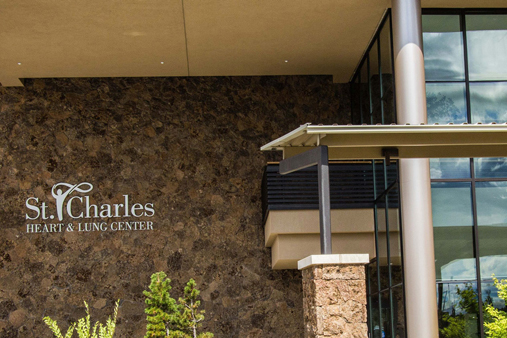Starting this week, St. Charles Health System is offering three new outpatient treatments for people with COVID-19, but supplies are “severely limited,” said Dr. Jacoby Allen, one of the physicians working to operationalize the treatments.
“Studies are showing that these medications do have some benefit. They seem to be effective in preventing severe disease and hospitalization for those at high risk,” Allen said Monday. “It’s availability that’s the big issue. We are going to try to deploy them as equitably and appropriately and quickly as possible, but we’re not going to have enough on hand to treat our current surge.”
The three treatments are:
Per National Institutes of Health recommendation, health care organizations should prioritize use of the three medications, starting with Paxlovid, followed by Sotrovimab and Molnupiravir, Allen said. That recommendation – along with the limited supply of each treatment – prompted Allen and a team of his colleagues to spend significant time devising an algorithm to determine who should be prioritized to receive a treatment and which one they should receive.
The treatment algorithm – called the COVID-19 Therapy Screen and Prioritization Policy – factors in a patient’s risk factors and how their current medications would interact with the treatment, as well as their access to other potential resources for treatment. St. Charles’ service area is approximately the size of South Carolina, which means ease of delivery is a factor that must be considered, Allen said.
The ultimate goal is to target the best therapy to the person with the highest risk, he said.
“Since the end of December, when we started receiving notification that we would have some of these, we’ve spent a lot of late nights developing this treatment algorithm,” Allen said. “So now that they’re here, we do have a clear process that we’re deploying this week that will guide patients through our system.”
That process allows for self-referrals as well as physician referrals and includes, for some people, a consultation with a provider to discuss medical history and current medications. A consultation is not a guarantee of treatment, Allen said.
High-priority patients include people age 65 and older, pregnant women and people who are severely immunocompromised or who have at least one high-risk comorbidity, such as obesity, chronic kidney disease, cardiovascular disease or a pulmonary disease.
“Our Incident Command team, our administrators and our clinical folks have put a lot of thought into this policy and trying to make it equitable to all the communities we serve,” Allen said. “It hasn’t been an easy conversation, but all along, we have been committed to following the science, and that means we’re really trying to objectively identify who needs the treatment first, and which one is right for them.”
Learn more about St. Charles’ new COVID-19 treatments on our website.





